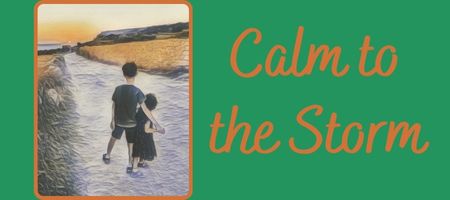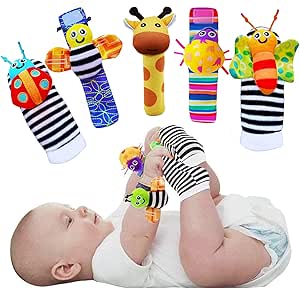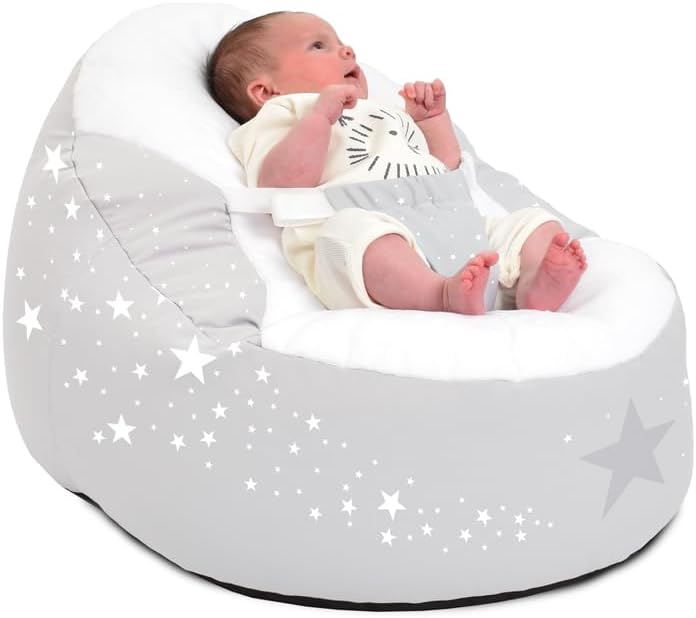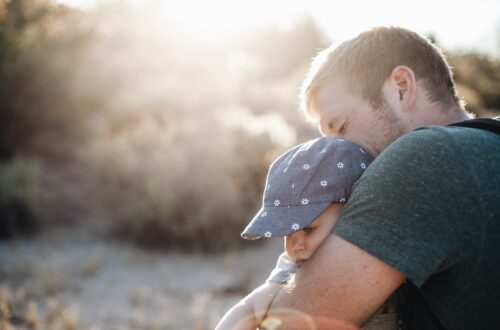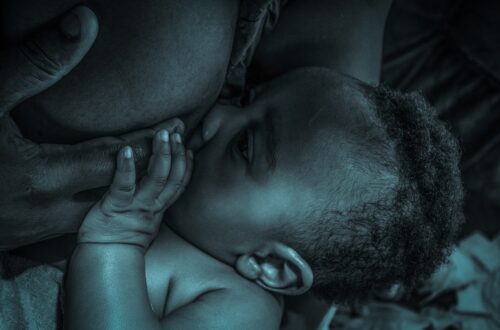
The Importance of Talking to Your Baby
The importance of talking to your baby should not be overlooked. Although they are unable to chat back, taking time to speak to them throughout the day can be beneficial.
The importance of talking to your baby in the womb
It may feel silly talking to your baby whilst they are still in utero. In fact, the importance of talking to your baby in the womb has been highlighted by research into prenatal language development.
Studies have shown that from about 16 weeks, a baby begins to hear the world outside their mother’s womb. By 24 weeks, they will respond to their mother’s voice. This means they can identify their mother’s voice amidst others.
Furthermore, at birth a baby can recognise the rhythm of its mother’s native language over other languages and dialects.
This is not just the beginning of bonding between mother and baby, but also part of a baby’s language development. The early exposure to the nuances of their mother’s language will shape their brain, getting it ready for learning that same language after birth.
Can your baby understand what you are saying?
At birth, your baby will not understand the words that you are saying. This does not mean that they can’t relate to you. Rather, for your baby, there will be more importance placed on the tone you use when you speak with them. They will notice things like your facial expressions when you speak, and the way that you respond to their cries.
As they continue to grow, they constantly learn, absorbing everything around them. At around two months old, your baby tries to mimic the speech that they have heard from you. They will babble and play around with sounds.
The importance of turn-taking when you talk to your baby
Although your baby can’t understand your words or have a conversation, they can practice the art of conversation by turn-taking.
Turn-taking is a fun activity to try with your little one, and a great way to bond with them. Sit facing your baby and speak to them, then be quiet and wait for them to babble back at you. Let them babble till they stop, and then it is your turn to talk again.
As well as connecting with your baby, turn-taking helps babies work on their communication, social and language skills.
Baby talk
There is a cooing voice that many people find themselves using when they talk to a baby. We often don’t intend to speak differently, and may feel embarrassed when we find ourselves naturally doing it.
Many language experts, however, believe in the importance of talking to your baby this way. A lot of the differences that you make to your speech are actually beneficial.
The higher tone is easier for a young baby to hear clearly, and the sing-song rhythm is simpler for them to process, rather than the normal flow of conversation.
Some of the words that we use, such as bunny or kitty, also help language acquisition. When you use these cutesy terms with your little one, you are emphasising the rhythm of the words.
When do babies understand language
As babies are immersed in language, they will slowly begin to understand the meaning of words. From as early as four months, a baby can recognise their name.
After hearing words repeated over and over in context, they will start to expand their vocabulary. Towards the end of their first year, they should have a few words that they recognise. These first few known words are often spoken commands, such as ‘no’ or ‘stop’. Throughout their second year, toddlers’ understanding of language is likely to flourish.
Immersion in a language is an important part of this development. A baby who is spoken to regularly and is surrounded by conversation will have more opportunities to learn, and therefore is likely to understand and speak their language at an earlier age.
The importance of singing to your baby
Nursery rhymes are fun, and often sharing them with your baby can take you back to your childhood.
Singing with your baby is also great for their linguistic development. As with baby talk, the rhythm of songs can help their brain process and remember words. Babies also learn a lot from repetition, meaning that the structure of many baby songs is perfect for them.
By singing the same songs or nursery rhymes over, you can create a predictable structure. This is great for their cognitive development, as they see the patterns and learn to anticipate a clap or bounce after a certain word.
How to talk to your baby
The way that you talk to your baby will change depending on their age.
At any age, it is a good idea to start with their name, so they learn to respond to it.
A newborn baby will love to look at your face, so get close to them when you speak with them, and remember to smile. When they start to babble back, let them have their turn. Don’t be embarrassed to use a baby voice, as this will help them to process the language that you are using.
As your baby gets older,, you can start to name things around you, adding more detail as their understanding increases. You may begin just pointing out objects, ‘It’s a fish!” Then as your child develops, they may understand more detailed sentences, ‘Look, the orange fish is swimming.”
When your baby talks back to you
By the time your baby talks back to you, they will likely be a toddler. Whatever the age, it is always exciting to hear your little ones’ first words.
When your child begins to talk to you, it is an opportunity to model listening. They may get words wrong at first; that is okay. It can be tempting to correct them, but you don’t need to. You can just repeat what they said correctly, “Yes, the fish is swimming!” and let them learn as they go.
A final note
Although they can’t talk back, the importance of talking to your baby is undeniable. Let them hear your voice, and soon enough you will hear theirs too.
I wish you all the peace,
Hannah Louise
References
“Babies: Their Wonderful World – Exploring the Science behind “Baby Talk.”” BBC Tiny Happy People, 2023, www.bbc.co.uk/tiny-happy-people/articles/zk8dscw.
“Baby Talk Used by Adults and Why We Speak in Baby Talk with Kids.” BBC Tiny Happy People, 2023, www.bbc.co.uk/tiny-happy-people/articles/z92xnk7.
Gervain, Judith. “The Role of Prenatal Experience in Language Development.” Current Opinion in Behavioral Sciences, vol. 21, June 2018, pp. 62–67, https://doi.org/10.1016/j.cobeha.2018.02.004.
https://www.facebook.com/nhswebsite. “Help Your Baby Learn to Talk.” Nhs.uk, Dec. 2020, www.nhs.uk/baby/babys-development/play-and-learning/help-your-baby-learn-to-talk/.
Mariani, Benedetta, et al. “Prenatal Experience with Language Shapes the Brain.” Science Advances, vol. 9, no. 47, 24 Nov. 2023, https://doi.org/10.1126/sciadv.adj3524.
McElroy, Molly. “While in Womb, Babies Begin Learning Language from Their Mothers.” UW News, 2019, www.washington.edu/news/2013/01/02/while-in-womb-babies-begin-learning-language-from-their-mothers/.
Sauer, Mary. “Developmental Milestones: Understanding Words, Behavior, and Concepts | BabyCenter.” BabyCenter, 7 Mar. 2022, www.babycenter.com/baby/baby-development/developmental-milestones-understanding-words-behavior-and-co_6575.
“Talking to Your Bump – What Are the Benefits?” BBC Tiny Happy People, 2021, www.bbc.co.uk/tiny-happy-people/articles/z4xy2sg.
Weisleder, Adriana, and Anne Fernald. “Talking to Children Matters: Early Language Experience Strengthens Processing and Builds Vocabulary.” Psychological Science, vol. 24, no. 11, 10 Sept. 2013, pp. 2143–2152, https://doi.org/10.1177/0956797613488145.
“Why Taking Turns Is so Important.” BBC Tiny Happy People, www.bbc.co.uk/tiny-happy-people/articles/zgc6qfr.


